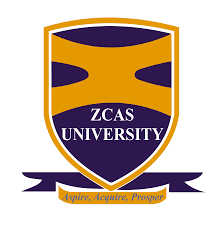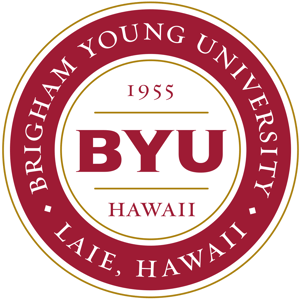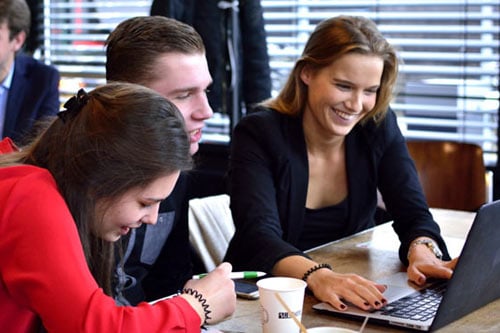"The simulation is providing a platform to deal with complexity, helping mature our thinking about management problems and problem solving."
– Dr Dan Anderson, University of Liverpool MBA Director
MBA programs face mounting pressure to produce leaders who can navigate complexity while driving sustainable business practices. At the University of Liverpool, Dr. Dan Anderson has created a tiered experiential learning approach that moves students from theoretical knowledge through simulated complexity to real-world application.
His model demonstrates how institutions can develop the multi-generational leadership skills that modern organizations desperately need.
Experience the full range of simulations shaping future-ready graduates.
The Four-Tier Leadership Development Model
Liverpool's MBA program uses a carefully sequenced approach: strategic foundation through traditional modules, simulated complexity via business simulations, international context through embedded trips, and real-world application via consultancy projects.
Dr. Anderson explains the rationale: "We're avoiding accidental managers—people who find themselves in management positions but haven't had relevant training where they can experience complexity and understand their reactions to team dynamics."
The simulation provides a safe space to test frameworks under competitive pressure while managing diverse team dynamics.
Learn how tiered experiential learning transforms MBA outcomes:
Managing Multi-Generational Teams
With five generations now in the workforce, Liverpool's MBA cohorts span from early thirties to late fifties. Dr. Anderson deliberately structures team formation through a "simulated job market" where students compete for specific roles—CEO, Operations Director, Finance Director, HR Director, and Marketing Manager—rather than simply working with friends.
This approach exposes students to realistic workplace dynamics where they must manage different communication styles, technological competencies, and work preferences across generational lines. The simulation becomes a testing ground for collaborative skills essential in modern remote and hybrid work environments.
Sustainability as Strategic Imperative
Liverpool has embedded UN Sustainable Development Goals directly into their simulation experience, requiring students to articulate how their virtual companies will create genuine social impact beyond profit generation.
Dr. Anderson notes the shift in student expectations: "What is coming through very strongly is, 'Where is the sustainability piece in your MBA?'" Students must justify their SDG choices and elaborate on realistic implementation strategies, avoiding superficial greenwashing.
This approach prepares graduates for a job market increasingly focused on ESG considerations and purpose-driven leadership.
Modern Workplace Skills Integration
Today's business environment demands new competencies around digital collaboration and remote team management. Liverpool's program integrates Microsoft Teams into learning activities while maintaining face-to-face interaction, where Anderson sees "a lot of value placed on that."
The hybrid model prepares students for contemporary work realities where they will manage remote teams, coordinate across time zones, and maintain culture in distributed organizations.
Ready to develop next-generation business leaders?
Employer Validation
The program's effectiveness shows in graduate outcomes. Former students report using simulation experiences successfully in recruitment processes at major consultancy firms, where employers specifically test team interaction, problem-solving, and analytical thinking under pressure.
One graduate noted: "They made me use a simulation in the recruitment process—I was like, 'I've been there, I've done it, I know what happened and what I'm doing.'"
Dr. Anderson emphasizes building resilience through managed failure: "You're probably number five or six in the rankings. How do you deal with that?" The simulation environment allows students to experience setbacks safely and develop emotional intelligence essential for senior leadership roles.
Liverpool's tiered approach shows how MBA programs can evolve beyond traditional case study methods to develop the complex leadership competencies that sustainable business success requires.
Key Takeaways: Effective leadership development requires sequential skill building from theory through simulation to real application, multi-generational team experience prepares graduates for modern workforce realities, and embedded sustainability education must go beyond surface-level awareness to strategic integration.


.png?length=300&name=unnamed%20(11).png)
.png?length=300&name=unnamed%20(7).png)
.png?length=300&name=unnamed%20(8).png)
.png?length=300&name=unnamed%20(6).png)

.png?length=300&name=unnamed%20(10).png)
.png?length=300&name=unnamed%20(5).png)
.png?length=300&name=unnamed%20(9).png)
.png?length=300&name=unnamed%20(4).png)
.png?length=300&name=unnamed%20(2).png)
.png?length=300&name=unnamed%20(1).png)
.png?length=300&name=unnamed%20(3).png)
.jpg?length=300&name=unnamed%20(2).jpg)





.png?length=300&name=loughborough-university-logo%20(small).png)





